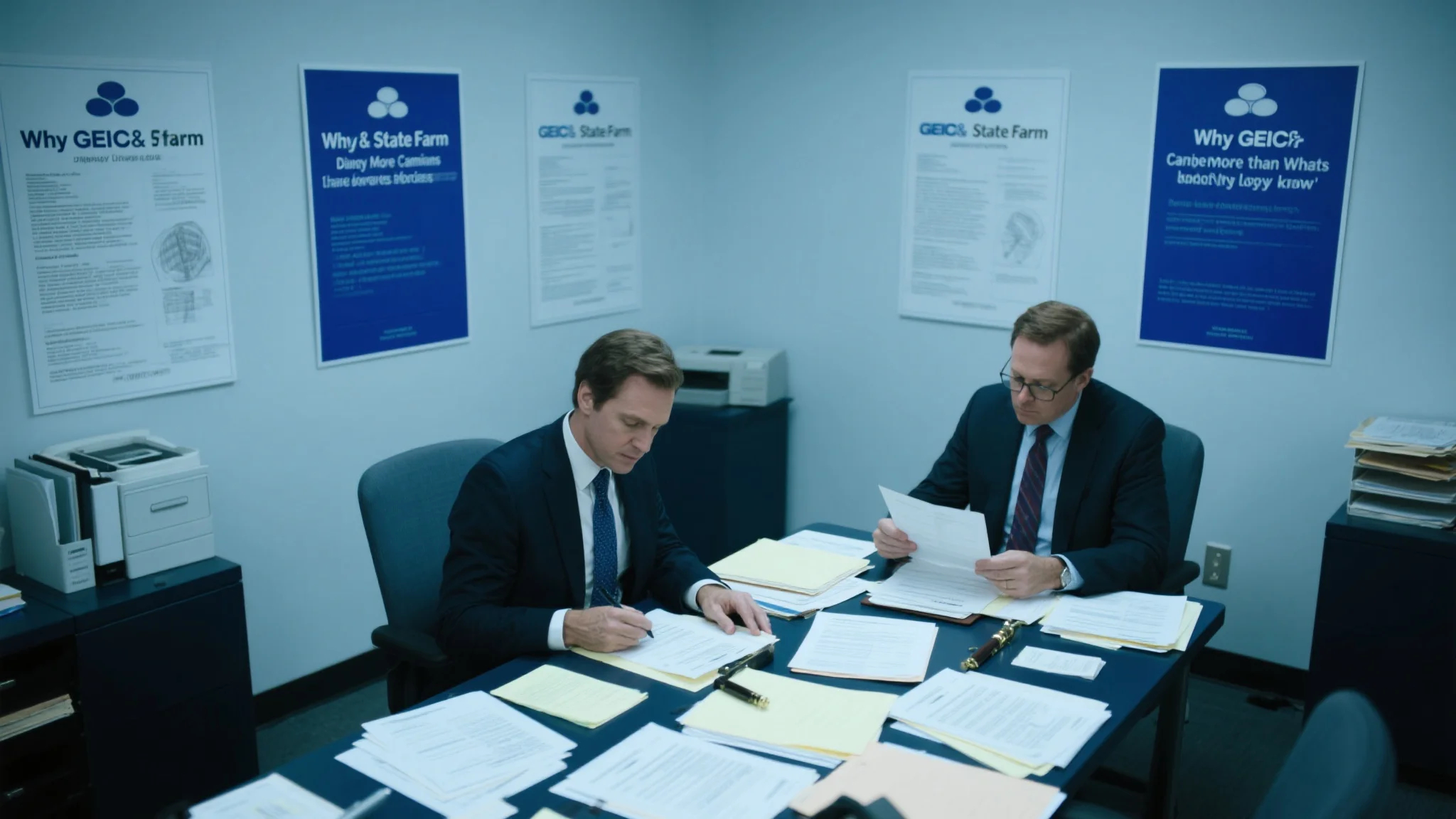Understanding the Insurance Supervisor Hierarchy and Decision-Making Process
When your insurance claim has been initially denied, understanding the internal structure and decision-making hierarchy within insurance companies becomes crucial for developing an effective strategy to negotiate insurance claim reversals. Insurance companies operate with multiple levels of authority, and the initial denial you received was likely made by a front-line adjuster who may have limited authority to approve larger claims or complex cases. These adjusters often work within strict guidelines and predetermined parameters that may not account for the unique circumstances of your particular situation.
The supervisor level represents the first significant opportunity to present your case to someone with greater authority and decision-making power. Insurance supervisors typically have broader discretion in claim evaluation and can override initial denials when presented with compelling evidence or when they determine that the original decision was made in error. However, approaching supervisors requires a strategic understanding of their role within the company structure and the pressures they face from both upper management and regulatory requirements.
Insurance supervisors are evaluated based on multiple metrics, including claim closure rates, customer satisfaction scores, and adherence to company guidelines. This means they are motivated to resolve claims efficiently while maintaining company profitability. Understanding these competing interests allows you to frame your negotiation in terms that align with their professional objectives. When you can demonstrate that approving your claim serves both your interests and their performance metrics, you create a win-win scenario that increases the likelihood of a favorable outcome.
The timing of your approach to supervisors can significantly impact the success of your negotiation efforts. Insurance companies often have internal review periods and escalation procedures that must be followed before supervisor intervention becomes appropriate. Attempting to bypass these procedures too early may result in your request being redirected back to the original adjuster, potentially damaging your credibility and reducing your chances of success. Conversely, waiting too long may allow the company to solidify their position or may result in important evidence becoming stale or less compelling.
Documentation plays a critical role in supervisor-level negotiations, as these individuals typically review cases based on written records rather than conducting their own independent investigations. Your ability to present clear, organized, and compelling documentation can make the difference between a successful negotiation and continued denial. This documentation should include not only the facts of your case but also a clear explanation of why the initial denial was inappropriate or based on incomplete information.
The psychological aspects of supervisor negotiations cannot be overlooked. These individuals deal with numerous disputed claims daily and may have developed a natural skepticism toward claimants who challenge initial decisions. Overcoming this skepticism requires a professional, fact-based approach that demonstrates your credibility and the legitimacy of your claim. Emotional appeals or aggressive tactics are typically counterproductive at this level, as supervisors are trained to focus on objective criteria rather than subjective considerations.
Understanding the regulatory environment in which insurance supervisors operate provides additional leverage in negotiations. Insurance companies are subject to state regulations that govern claim handling practices, and supervisors are acutely aware of their obligations under these regulations. When you can demonstrate that the initial denial may have violated regulatory requirements or industry standards, supervisors are often motivated to resolve the matter quickly to avoid potential regulatory scrutiny or penalties.
Strategic Approaches for Effective Insurance Supervisor Negotiations
Developing an effective strategy for insurance supervisor negotiation requires careful preparation and a thorough understanding of both your case strengths and the supervisor’s decision-making criteria. The most successful negotiations begin with a comprehensive review of your claim file, including all correspondence, documentation, and evidence that was considered in the initial decision. This review should identify any gaps in the information that was provided to the original adjuster, as well as any misinterpretations or errors in the evaluation process.
The presentation of new evidence or alternative interpretations of existing evidence forms the foundation of most successful supervisor negotiations. This might include additional medical records, expert opinions, witness statements, or technical analyses that were not available or not properly considered during the initial review. The key is to present this information in a way that clearly demonstrates how it changes the fundamental analysis of your claim, rather than simply providing more of the same type of evidence that was already rejected.
Framing your negotiation in terms of company policies and procedures can be particularly effective when dealing with supervisors. These individuals are responsible for ensuring that their departments operate in accordance with established guidelines, and they are often receptive to arguments that demonstrate how the initial denial deviated from standard procedures. This approach requires a thorough understanding of the insurance company’s published policies, as well as industry standards and regulatory requirements that govern claim handling practices.
The use of precedent can be a powerful tool in supervisor negotiations, particularly when you can identify similar claims that were approved by the same company or when you can reference industry standards for handling comparable situations. Insurance companies strive for consistency in their claim handling practices, both to ensure fairness and to minimize legal exposure. When you can demonstrate that your claim should be treated similarly to other approved claims, supervisors are often motivated to align their decision with established precedents.
Economic considerations play a significant role in supervisor-level decision making, and understanding these factors can help you structure your negotiation more effectively. Supervisors must consider not only the immediate cost of approving your claim but also the potential costs of continued dispute, including legal fees, regulatory investigations, and damage to the company’s reputation. When you can demonstrate that the costs of continued denial outweigh the costs of approval, you create a compelling business case for resolution.
The timing and method of your initial contact with supervisors can set the tone for the entire negotiation process. A well-crafted written request that clearly outlines your concerns with the initial denial and requests supervisor review demonstrates professionalism and seriousness of purpose. This initial communication should be concise but comprehensive, providing enough detail to allow the supervisor to understand the issues without overwhelming them with unnecessary information.
Follow-up communications during the negotiation process require careful balance between persistence and patience. Supervisors typically have heavy caseloads and may not be able to respond immediately to your request. However, reasonable follow-up demonstrates your continued interest in resolution and helps ensure that your case remains a priority. The key is to establish a communication schedule that allows adequate time for review while maintaining momentum toward resolution.
The role of professional representation in supervisor negotiations varies depending on the complexity of your case and your comfort level with the negotiation process. While many successful negotiations can be conducted directly between claimants and supervisors, complex cases or those involving significant amounts may benefit from professional representation. Attorneys or public adjusters who specialize in insurance claims bring expertise in negotiation tactics and industry knowledge that can be valuable in achieving favorable outcomes.

Maximizing Success in Denied Claim Negotiations Through Preparation and Persistence
The ultimate success of your denied claim negotiation efforts depends largely on your ability to maintain focus on the core issues while adapting your approach based on the responses you receive from insurance supervisors. This requires a combination of thorough preparation, strategic thinking, and persistent follow-through that demonstrates your commitment to achieving a fair resolution. The most successful negotiations are those where claimants have invested the time and effort necessary to understand both their own case and the perspective of the insurance company.
Preparation for supervisor negotiations should include a comprehensive analysis of all aspects of your claim, from the initial incident through the denial decision. This analysis should identify the strongest elements of your case as well as any potential weaknesses that the insurance company might exploit. Understanding these weaknesses allows you to address them proactively in your negotiations rather than being caught off guard by supervisor questions or concerns. Additionally, this preparation should include research into the specific insurance company’s practices, recent regulatory actions, and industry trends that might influence their decision-making process.
The development of alternative resolution scenarios can significantly enhance your negotiating position by providing supervisors with multiple options for resolving your claim. Rather than simply demanding full approval of your original claim, consider whether partial settlements, alternative benefit structures, or modified coverage arrangements might be acceptable. This flexibility demonstrates your willingness to work collaboratively toward resolution and may make it easier for supervisors to find a solution that meets both your needs and their company’s requirements.
Documentation of all negotiation communications is essential for maintaining accountability and building a record that may be useful if further escalation becomes necessary. This documentation should include detailed notes of all telephone conversations, copies of all written correspondence, and records of any commitments or agreements made during the negotiation process. This record-keeping serves multiple purposes, including ensuring that you can follow up on specific commitments and providing evidence of good faith negotiation efforts if regulatory or legal action becomes necessary.
The escalation process beyond supervisor level should be understood and prepared for, even while you focus on achieving resolution at the supervisor level. Most insurance companies have multiple levels of management above supervisors, including department managers, regional directors, and executive-level personnel. Understanding this hierarchy and the appropriate procedures for escalation can help you maintain momentum if supervisor-level negotiations are unsuccessful. However, premature escalation can damage relationships and reduce your chances of success, so this option should be reserved for situations where supervisor negotiations have been exhausted.
The role of external pressure in supervisor negotiations should not be underestimated, particularly when it comes from regulatory agencies, professional organizations, or consumer advocacy groups. Insurance supervisors are acutely aware of their company’s reputation and regulatory standing, and they may be more motivated to resolve disputed claims when they perceive that external scrutiny is possible. This doesn’t mean that you should threaten regulatory action as a negotiation tactic, but rather that you should be aware of these options and prepared to pursue them if negotiations fail to produce satisfactory results.
Persistence in supervisor negotiations must be balanced with professionalism and respect for the supervisor’s time and authority. While it’s important to follow up on commitments and maintain pressure for resolution, aggressive or demanding behavior is typically counterproductive. The most successful negotiators are those who can maintain a professional demeanor while clearly communicating their expectations and the consequences of continued denial. This approach builds credibility and trust, which are essential elements of successful negotiations.
The psychological aspects of negotiation become particularly important when dealing with supervisors who may have developed defensive attitudes toward disputed claims. These individuals often view claim disputes as challenges to their professional competence, and they may be resistant to admitting that initial denials were inappropriate. Successful negotiators understand this dynamic and frame their arguments in ways that allow supervisors to change their position without losing face. This might involve focusing on new information that wasn’t available during the initial review or emphasizing changed circumstances that justify a different outcome.
The long-term implications of supervisor negotiations extend beyond the immediate resolution of your claim. The precedent established by your negotiation may influence how the insurance company handles similar claims in the future, and the relationships you build during the process may be valuable if you need to file additional claims. Additionally, the documentation and evidence you develop during supervisor negotiations may be useful if you need to pursue legal action or regulatory complaints. For these reasons, it’s important to approach supervisor negotiations with a long-term perspective that considers not only immediate resolution but also future implications and relationships.



